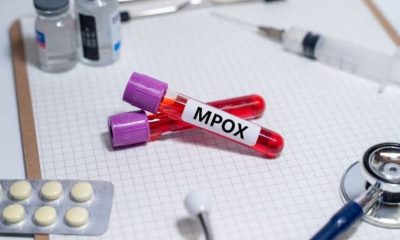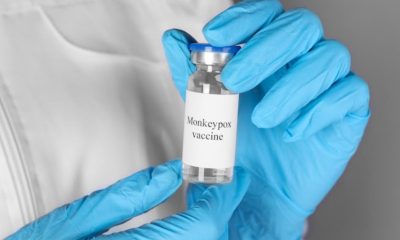

From polyps to colon cancer: the importance of screening
Follow Us @
From polyps to colon cancer: the importance of screening
– how to remain healthy, health and wellbeing, latest symptoms and treatments.
From polyps to colon cancer: the importance of screening
Colon cancer (colorectal cancer) is one of the most common cancers in Belgium and affects almost 8,000 people per year. The disease causes more than 2,600 deaths per year. However, there is also good news: the survival rate five years after diagnosis has increased to 70.8 percent in recent years. Research into colon cancer is also making great progress. This offers hope for better chances of curing colon cancer at every stage, even if there are metastases.
Also read: Everything you need to know about colon cancer
How does colon cancer develop?


© Getty Images
Colon cancer develops from polyps – an overgrowth of mucous membrane – in the colon. There are two types of polyps: type A and type B. Type A is stalked, grows slowly and if an average person without a genetic predisposition develops a polyp, it is usually this type. Type B is flat and grows faster than type A. Those who develop this type will also develop more in their life.
“Polyps are small and harmless,” says Professor Sabine Tejpar, gastroenterologist and digestive oncologist at KU Leuven. “You don’t feel them. You don’t know you have them. But you still have to have them removed because they are precursors to colon cancer.”
Polyps can be present in the bowel for years without being malignant. But the longer they are there, the more time they have to grow and become irritated. A few cells in the polyp become overstimulated and are transformed into malignant cells. This is how cancer develops. If you let the cells grow, the cancer can also grow through the bowel wall.
Also read: Colon polyps: usually harmless, sometimes malignant
Reduce the risk of colon cancer
Since polyps are precursors to colon cancer, it is important to detect them. There are two ways to do this. The first is through a colonoscopy. “This allows you to both see and remove the lesions,” says Tejpar. The second way is through a stool sample. “A sample is abnormal if there is blood in the stool. This means that the lesion is bleeding.” An abnormal sample is followed by a colonoscopy to see and remove the polyp.
This whole process takes a lot of time. “It takes ten years before a polyp is irritated. During those ten years, you will undoubtedly have some time to have the polyp removed,” the professor adds. “If you have the benign lesion removed, you have zero chance of cancer.”
Also read: How can you reduce the risk of colon cancer?
How do you know if you have a polyp?
Furthermore, getting older has an effect. “Our system starts to wear out,” says the professor. “Our body no longer functions as well as it used to. Our millions of intestinal cells also age, just like our immune system. The defense against polyps therefore becomes less and less.” As a final risk factor, the professor mentions a history of having had a polyp yourself, or having someone in your family who has (had) a polyp. But if there are other types of cancer in your family, that is also an indicator. Some cancers, such as breast and stomach cancer, have the same development mechanisms as colon cancer.
The right screening
For all forms of polyps/colon cancer, it is very important that you know as much as possible about yourself. The average person has a 5 percent chance of developing a polyp. This is usually a type A polyp. This type of polyp grows slowly. “These people are advised to have their stool screened between the ages of 50 and 75. They can also have a colonoscopy performed from the age of 50 and repeat this every ten years,” says Tejpar.
In addition, there is a large group of people who have an indirect genetic predisposition to develop polyps. They are more likely than the first group to develop polyps of both types at a younger age. According to Professor Tejpar, people with an average chance of developing polyps should have a colonoscopy performed from the age of 40, every five years.
Finally, there are people who will almost certainly develop polyps: people with congenital intestinal abnormalities, namely Crohn's disease or ulcerative colitis. They will be monitored constantly by a doctor.
Also read: Link between colon cancer and nitrites/nitrates in food
Treatment of colon cancer
The way in which a polyp develops (whether or not due to genetic predisposition, the type of polyp, etc.) determines the behavior, biology and treatment of the cancer. “If the tumor is in the intestinal wall and there are no metastases, then we will operate,” says Professor Tejpar. Depending on the tissue that has or has not been touched by the tumor, chemotherapy may follow. If the tumor has spread via the bloodstream to the lungs or liver, then chemotherapy is necessary.”
Sources:
From polyps to colon cancer: the importance of screening
Follow AFRILATEST on Google News and receive alerts for the main news about celebrities, soap operas, series, entertainment and more! From polyps to colon cancer: the importance of screening
SHARE POST AND EARN REWARDS:
Join our Audience reward campaign and make money reading articles, shares, likes and comment >> Join reward Program
FIRST TIME REACTIONS:
Be the first to leave us a comment – From polyps to colon cancer: the importance of screening
, down the comment section. click allow to follow this topic and get firsthand daily updates.
JOIN US ON OUR SOCIAL MEDIA: << FACEBOOK >> | << WHATSAPP >> | << TELEGRAM >> | << TWITTER >
From polyps to colon cancer: the importance of screening
#polyps #colon #cancer #importance #screening



 Online Earning2 months ago
Online Earning2 months agoSee the details about the fall of Bitcoins



 Trending Game3 months ago
Trending Game3 months agoDying Light 2 – 7 tips to do well in the zombie adventure



 USA today entertainment3 months ago
USA today entertainment3 months agoBLACKPINK's Lisa creates history with solo single



 Fashion3 months ago
Fashion3 months agoLearn different ways to use scarves; new bet for the summer of 2024



 Culture2 months ago
Culture2 months agoDiscover the Nike Run SP routes



 Trending Game3 months ago
Trending Game3 months agoDRAGON BALL Sparkling! ZERO rips through the skies on October 11th



 Trending Game3 months ago
Trending Game3 months agoSeason of the Reptile Arrives in Mortal Kombat 1 with Trailer



 Trending Game3 months ago
Trending Game3 months agoVictory Heat on Asphalt: Victory Heat Rally Is Coming!




























